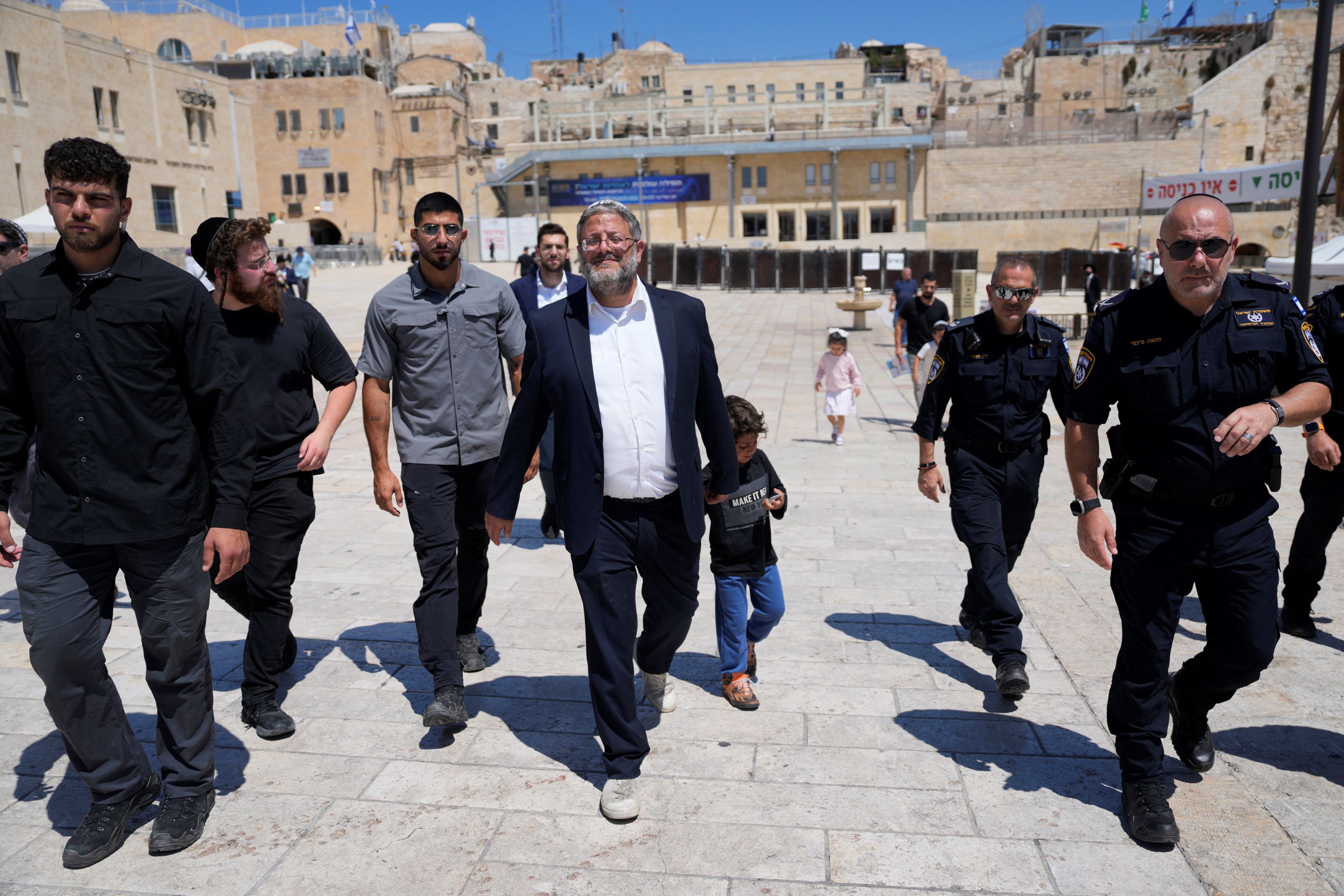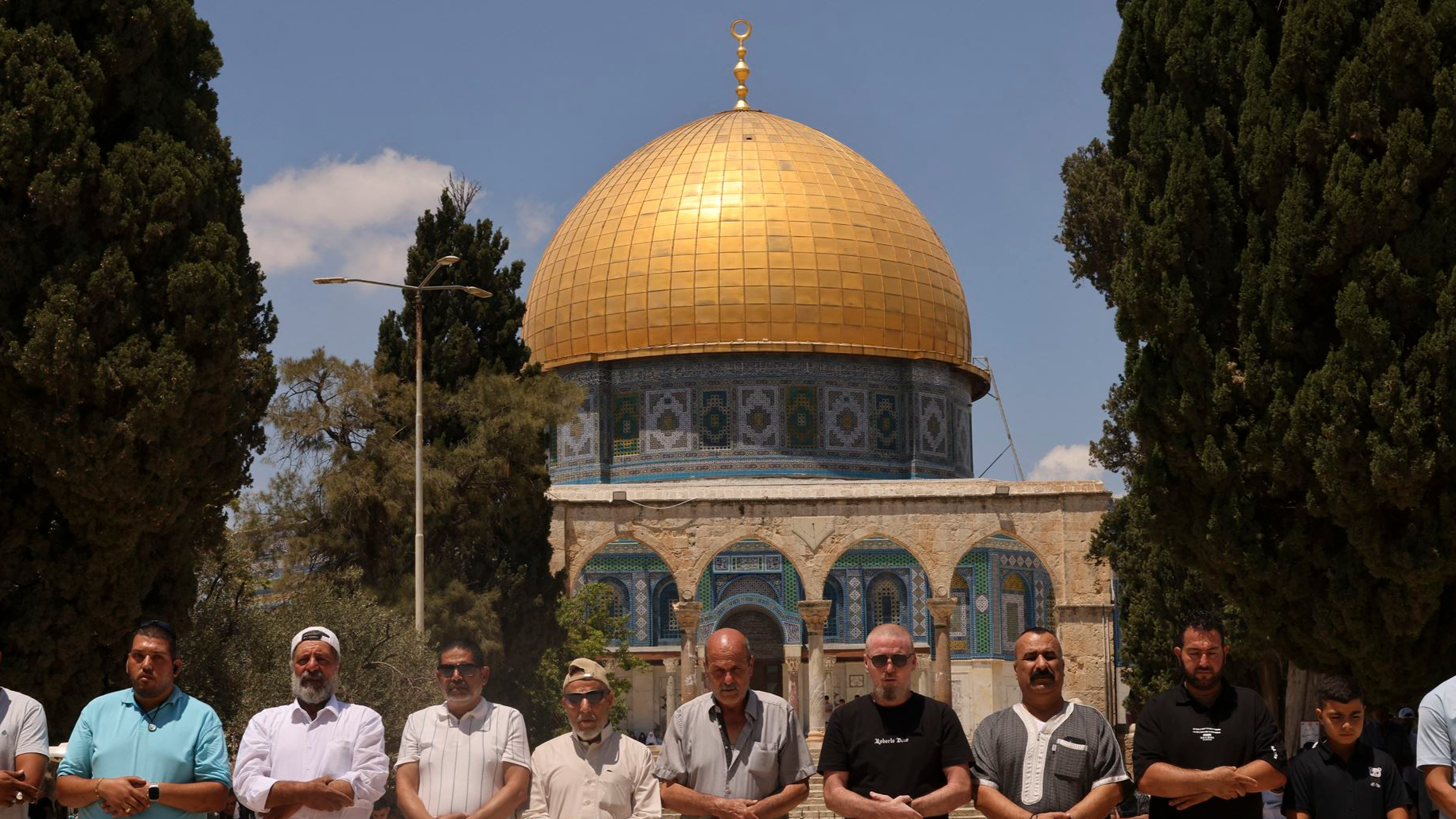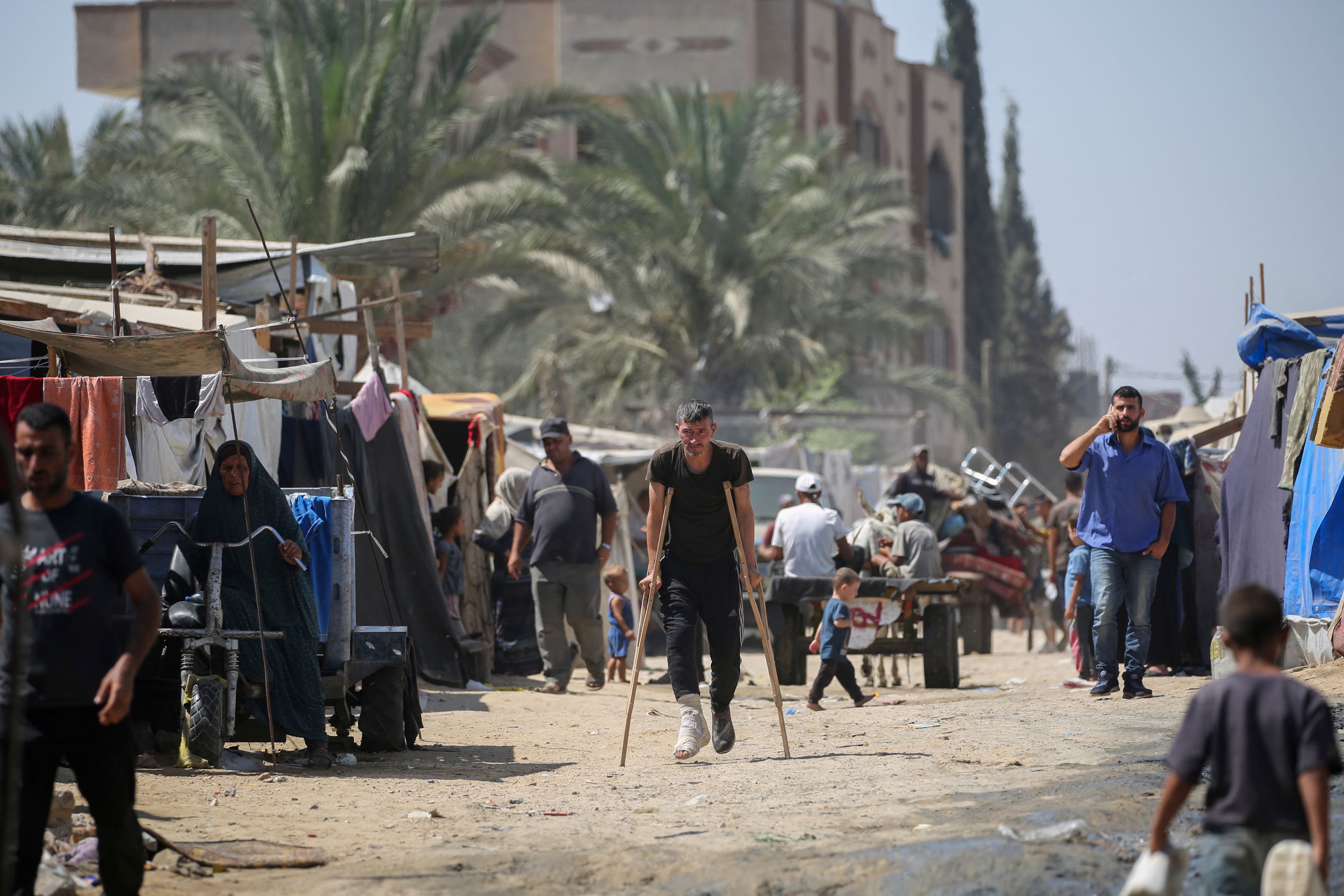
JERUSALEM/CAIRO - Israel's hardline Security Minister Itamar Ben-Gvir repeated a call for Jews to be allowed to pray at the Al-Aqsa mosque in Jerusalem, drawing sharp criticism for inflaming tensions as ceasefire negotiators seek a deal to halt fighting in Gaza.
"The policy at the Temple Mount allows praying there. Period," Ben-Gvir told an Army Radio interviewer. "The prime minister knew when I joined the government there would not be any discrimination. Muslims are allowed to pray and a Jew is not allowed to pray?"
Asked if he would build a synagogue on the site if he could, Ben-Gvir replied "Yes, Yes".
READ MORE: Israeli ministers' visit to Al-Aqsa Mosque compound condemned
Prime Minister Benjamin Netanyahu's office immediately put out a statement restating the official Israeli position, which accepts decades-old rules restricting non-Muslim prayer at the mosque compound, known as Temple Mount to Jews, who revere it as the site of two ancient temples.
"There is no change to the status quo on the Temple Mount," Netanyahu's office said.
The hillside compound, in Jerusalem's Old City, is one of the most sensitive locations in the Middle East, holy for both Muslims and Jews, and the trigger for repeated conflict.
Nabil Abu Rudeineh, spokesperson for Palestinian President Mahmoud Abbas, said calls to tamper with the status of Al-Aqsa appeared intended "to drag the region into a religious war that will burn everyone".
ALSO READ: Saudi Arabia condemns Israeli minister's visit to Al-Aqsa Mosque
The foreign ministry of Jordan, the custodian of Muslim holy sites in Jerusalem including Al Aqsa mosque, said it considered Ben-Gvir's statement "a violation of international law and an unacceptable incitement that requires a clear international position to condemn and confront it".
Ben-Gvir, head of one of two hardline religious-nationalist parties in Netanyahu's coalition, has a long record of making inflammatory statements appreciated by his own supporters, but conflicting with the government's official line.
Monday's comment was condemned by some of his own cabinet colleagues, but Netanyahu's dependence on the support of Ben-Gvir's party to hold his right-wing coalition together means that the minister is unlikely to be sacked or face any significant penalty.
Under a delicate decades-old "status quo" arrangement with Muslim authorities, Israel allows Jews to visit but refrain from prayer. The site is at the heart of the Israeli-Palestinian conflict, and suggestions that Israel would alter rules about religious observance there have led to violence in the past.
READ MORE: UN humanitarians struggle to deliver aid in Gaza
Education Minister Yoav Kisch said any change to the status quo at the mosque, especially in wartime should be carried out "professionally in the cabinet along with an examination of all the meanings and consequences".

"Minister Ben Gvir's irresponsible statement in the media on this issue is unnecessary and stupid populism," he said in a statement on X.
Monday's comments came less than two weeks after Ben-Gvir triggered outrage by visiting the compound with hundreds of supporters, many of whom appeared to be praying openly in defiance of the status quo rules.
With negotiators trying to reach a deal to halt the fighting in Gaza and bring back 109 Israeli and foreign hostages, and with tensions running high with the Hezbollah movement in southern Lebanon, Ben-Gvir's comments were criticized for weakening Israel's position.
ALSO READ: No agreement in Gaza ceasefire talks in Cairo; process to continue
"Challenging the status quo on the Temple Mount is a dangerous, unnecessary and irresponsible act. Ben-Gvir's actions endanger the state of Israel and its international status," Defence Minister Yoav Gallant, who has clashed repeatedly with Ben-Gvir, said in a statement on X.
Ben-Gvir has also been criticized by some Orthodox Jews, who consider the site too holy a place for Jews to enter.
Egyptian Foreign Ministry condemned Ben-Gvir’s remarks, stressing that Israel must comply with its obligations as an occupying power and stop making provocative remarks that could further escalate regional tensions.

The ministry warned that such remarks could hinder efforts toward a ceasefire in the Gaza Strip and pose a serious threat to the final settlement of the Palestinian issue.
ALSO READ: Claims of US and Israeli ‘smokescreen’ as Gaza talks falter
Also on Monday, Egyptian President Abdel-Fattah al-Sisi warned that the continuation of the current escalation in the Middle East is putting the region at risk of a possible regional war.
Sisi made the remarks during a phone call with Bulgarian President Rumen Radev, the Egyptian Presidency said in a statement.
He stressed the need to end the tragedy that the Palestinian people face immediately, adding that it was important for the international community to undertake a decisive role in the international recognition of the Palestinian state in a way that supports peace in the region and the two-state solution.
The Bulgarian president expressed appreciation for the Egyptian efforts to calm the situation in the region and his willingness to continue coordination and consultation with Sisi with the aim of contributing to restoring security and peace in the region.


